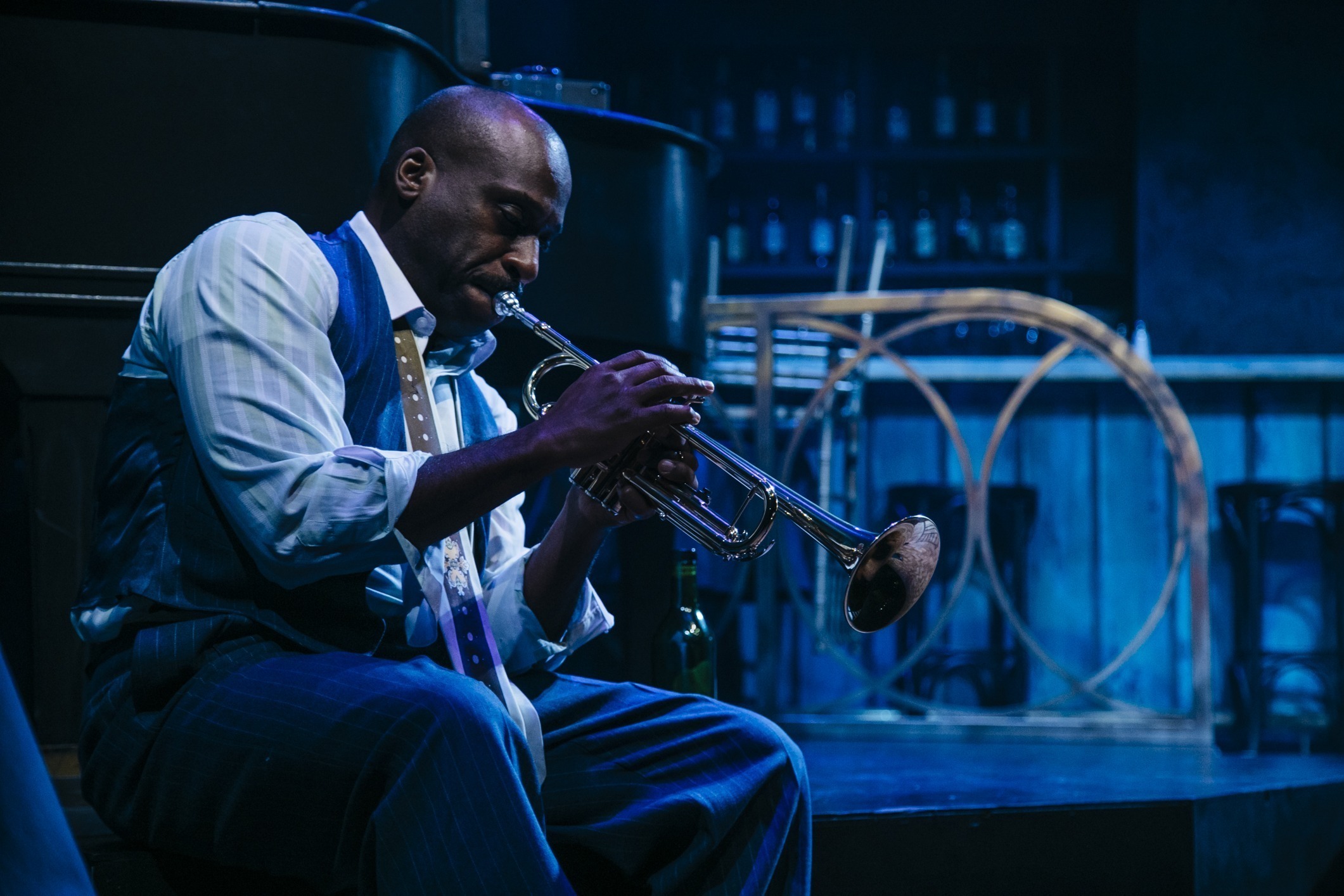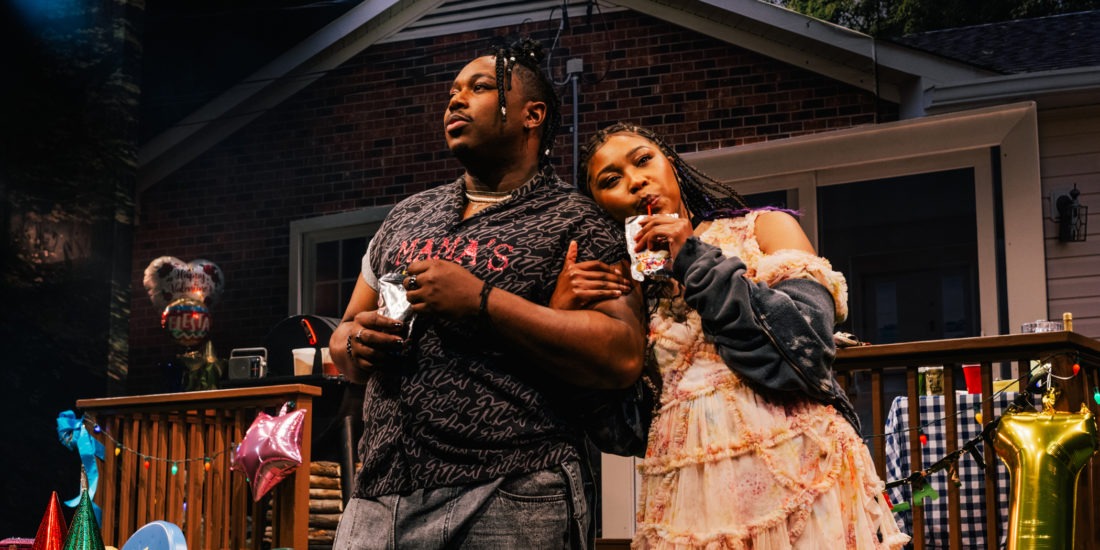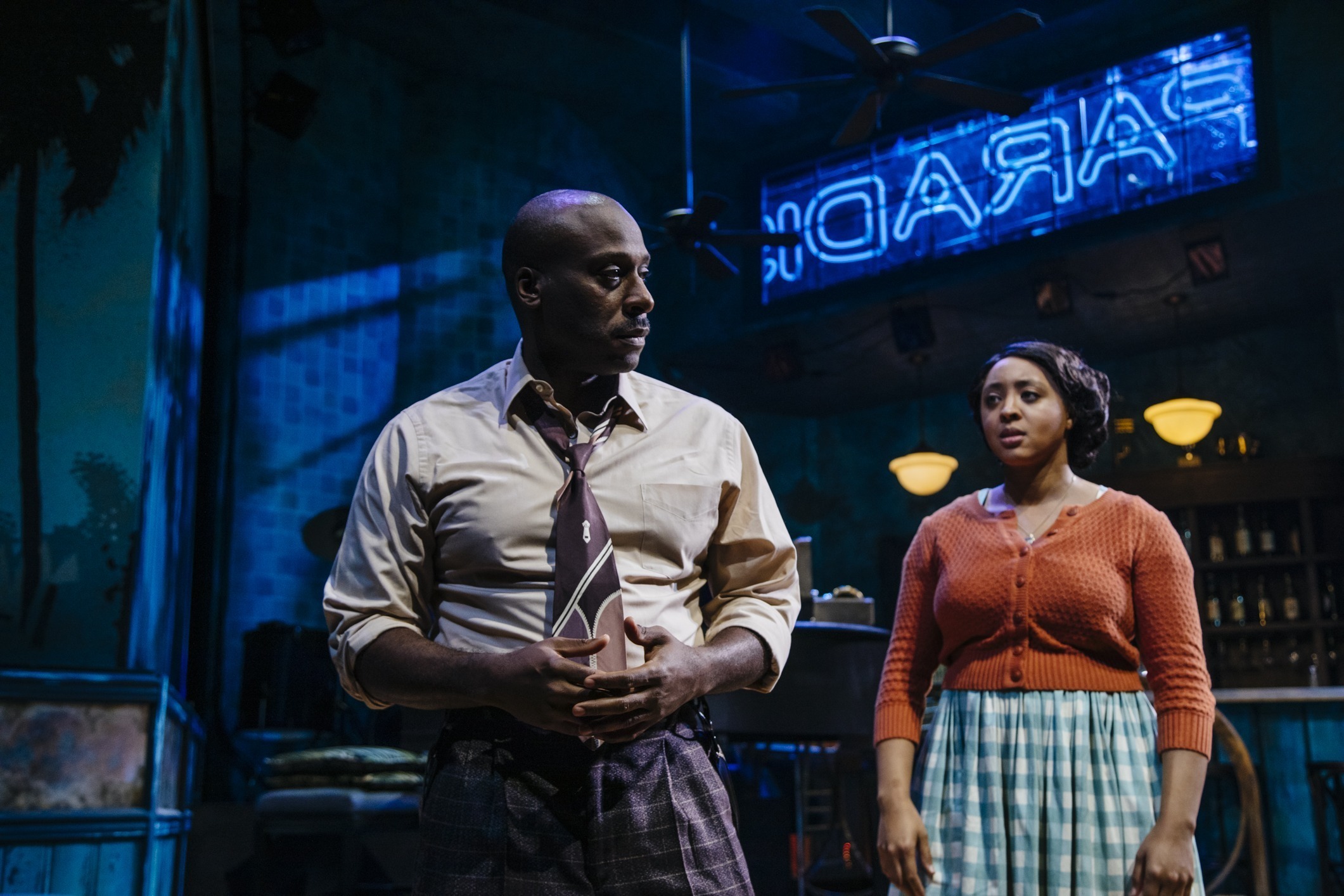
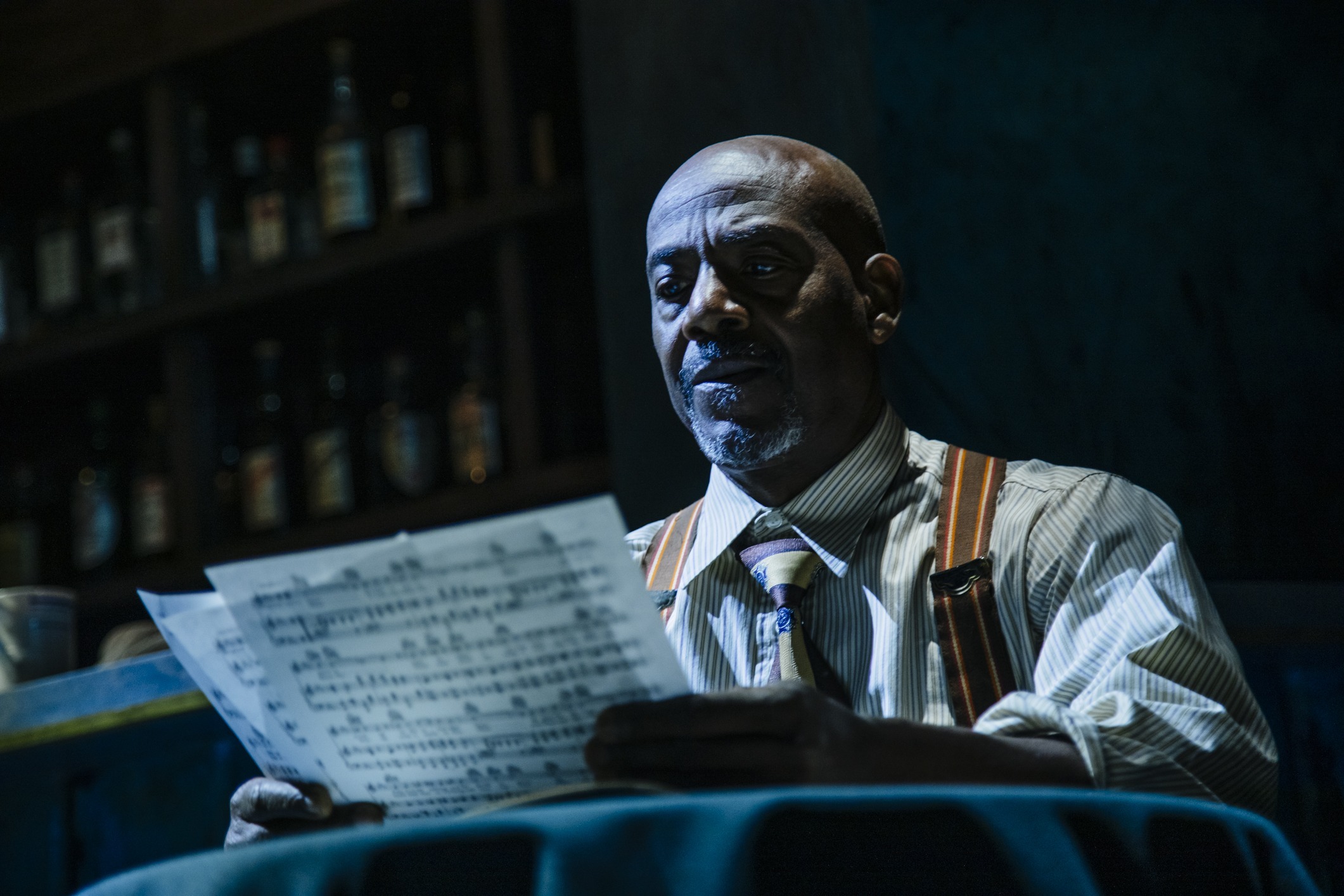
NOTE: On Wednesday, November 24—less than a week after opening night—Dominique Morisseau pulled her play PARADISE BLUE from the Geffen Playhouse and the production closed.
In her statement,* the playwright cites verbal abuse directed at one or more women on the creative team: “Harm began from within. Harm happened internally within the creative team, when fellow artists were allowed to behave disrespectfully.” According to Morisseau, the issues were not addressed by the theater in a timely or appropriate manner. The Geffen Playhouse has issued a statement of its own.
In our season of anticipation and joy at the return of live theater, Dominique Morisseau’s PARADISE BLUE—now at the Geffen Playhouse in Westwood—meets and exceeds audience expectations. Set at the end of the 1940s at the Paradise—a Detroit nightclub run by the temperamental trumpet player and bandleader Blue (Wendell B. Franklin)—this backstage narrative is draped in noir codes and customs, a template the playwright uses to state her case with a combination of straight talk and humor. Morisseau’s frank embrace of period melodrama warrants a shift in focus for the audience. Our familiarity with the tropes allows us to fully concentrate on the execution by a brilliant ensemble of actors bringing indelible characters to life.
The ground is shifting under the men and women of Paradise. The new mayor plans to bulldoze the club’s Black Bottom neighborhood, a center of Black entertainment and economic independence but, according to city hall, a stretch of vice and blight standing in the way of “redevelopment.” Blue may own the club—and unilaterally considers accepting the city’s offer to buy the land—but according to drummer P-Sam (Alani iLongwe), “You ain’t the one to make it. We all make this Paradise.” Cooking and cleaning and generally managing things for the boarding house tenants above the club, Pumpkin (Shayna Small) is Blue’s girlfriend, a self-described “go-along gal,” and a devotee of Harlem Renaissance poet Georgia Douglas Johnson. Corn (John Earl Jelks), the level-headed pianist, attempts to keep the peace between the parties and the rehearsals on time.
Into this lost world walks Silver (Tyla Abercrumbie), femme fatale nonpareil. An expert at handling any man, any gun, any situation, she blows through the joint effecting change and disruption all around her. An independent woman enduring her share of gossip and sexism, she carries a large bankroll and a small suitcase of necessities—lingerie and jazz records by Dizzy, Bird, and Lester Young. Fundamentally manipulative, Silver’s influence on her immediate circle is profound and, in the end, irrevocable. During an extraordinary, eleventh-hour transfer of agency and power, at least one of the ghosts of Paradise takes flight.
The Geffen Playhouse production of PARADISE BLUE is directed by Stori Ayers. Performances are Tuesday through Sunday evenings and weekend matinees. See link below for details (and Morisseau’s closing statement).
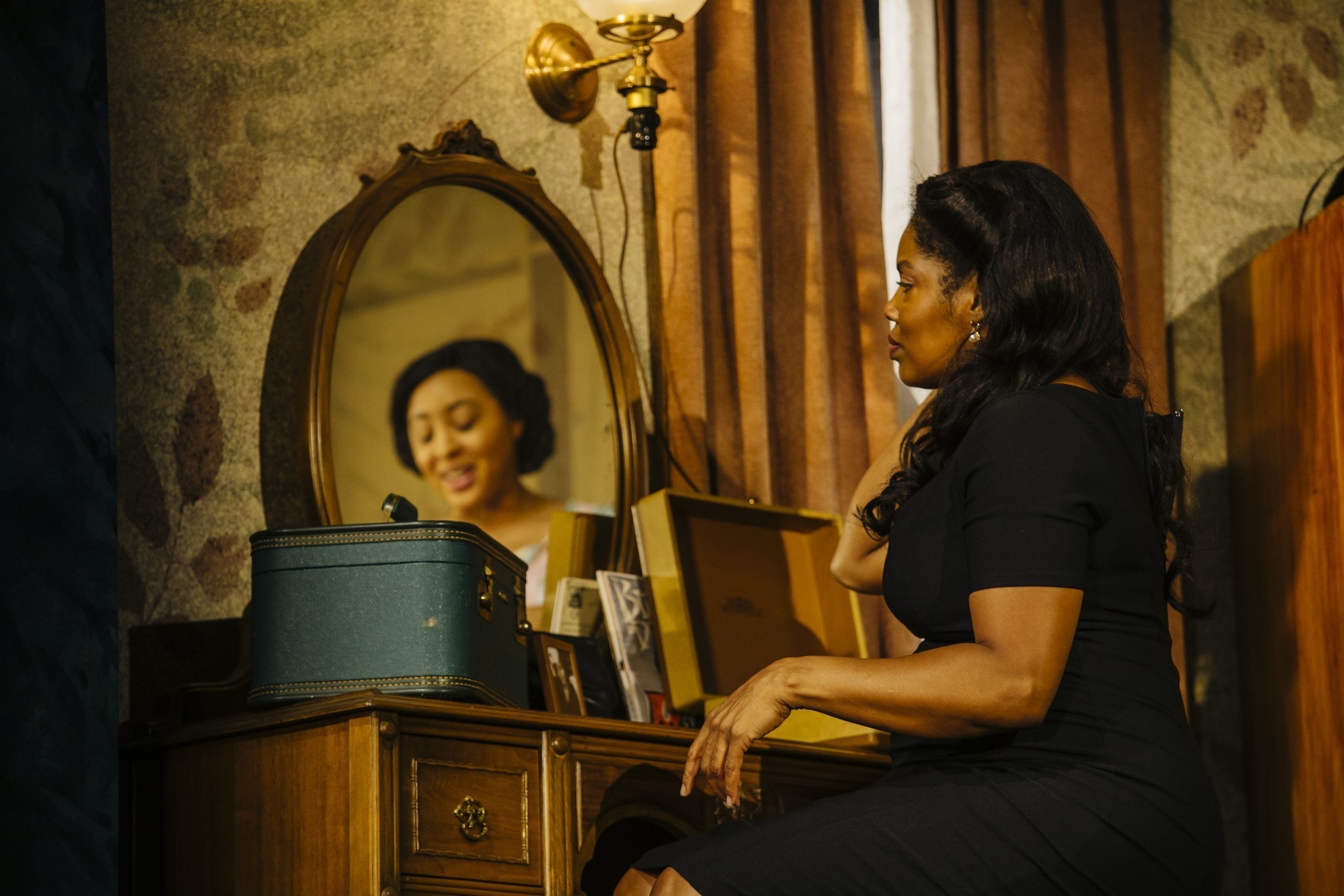
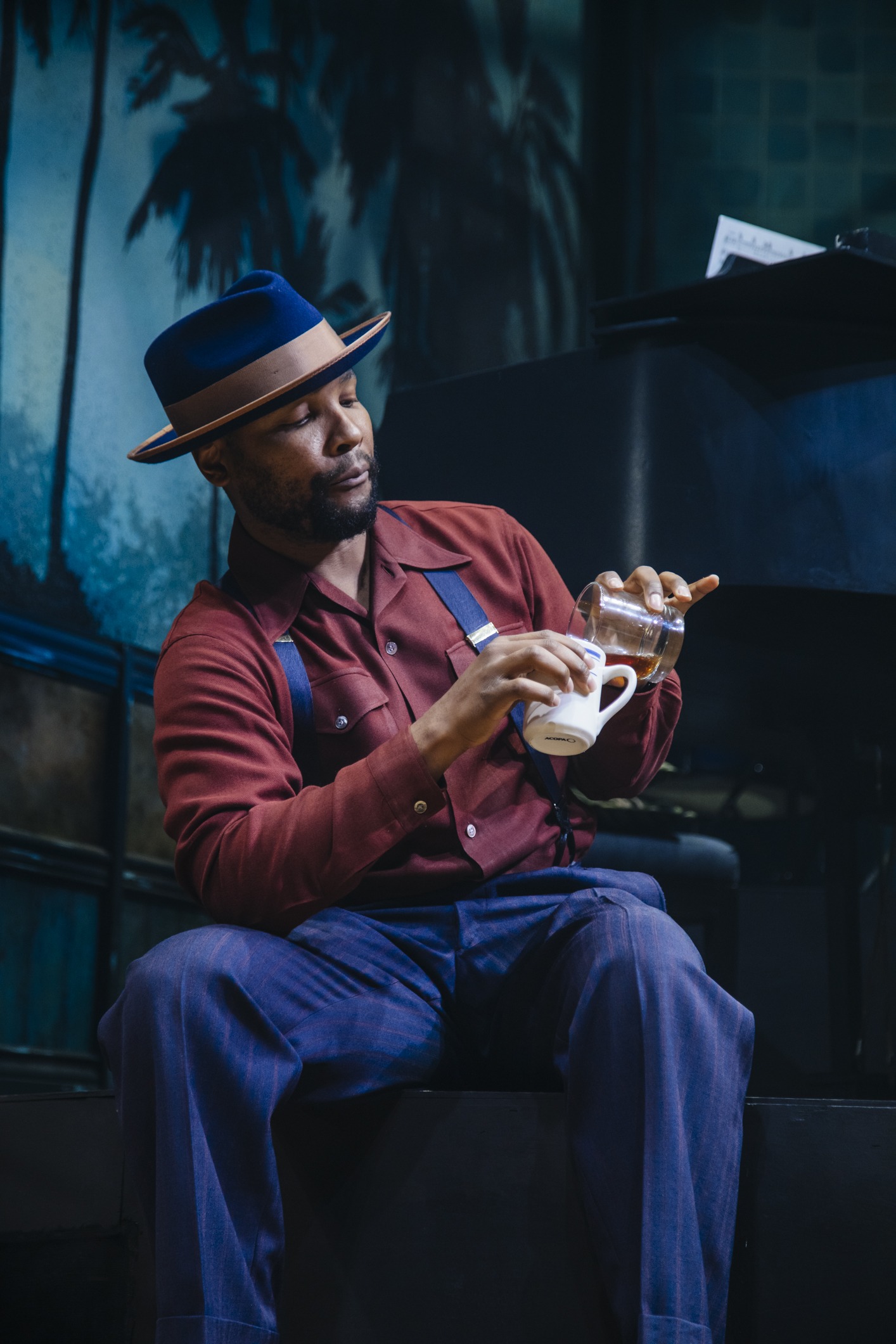
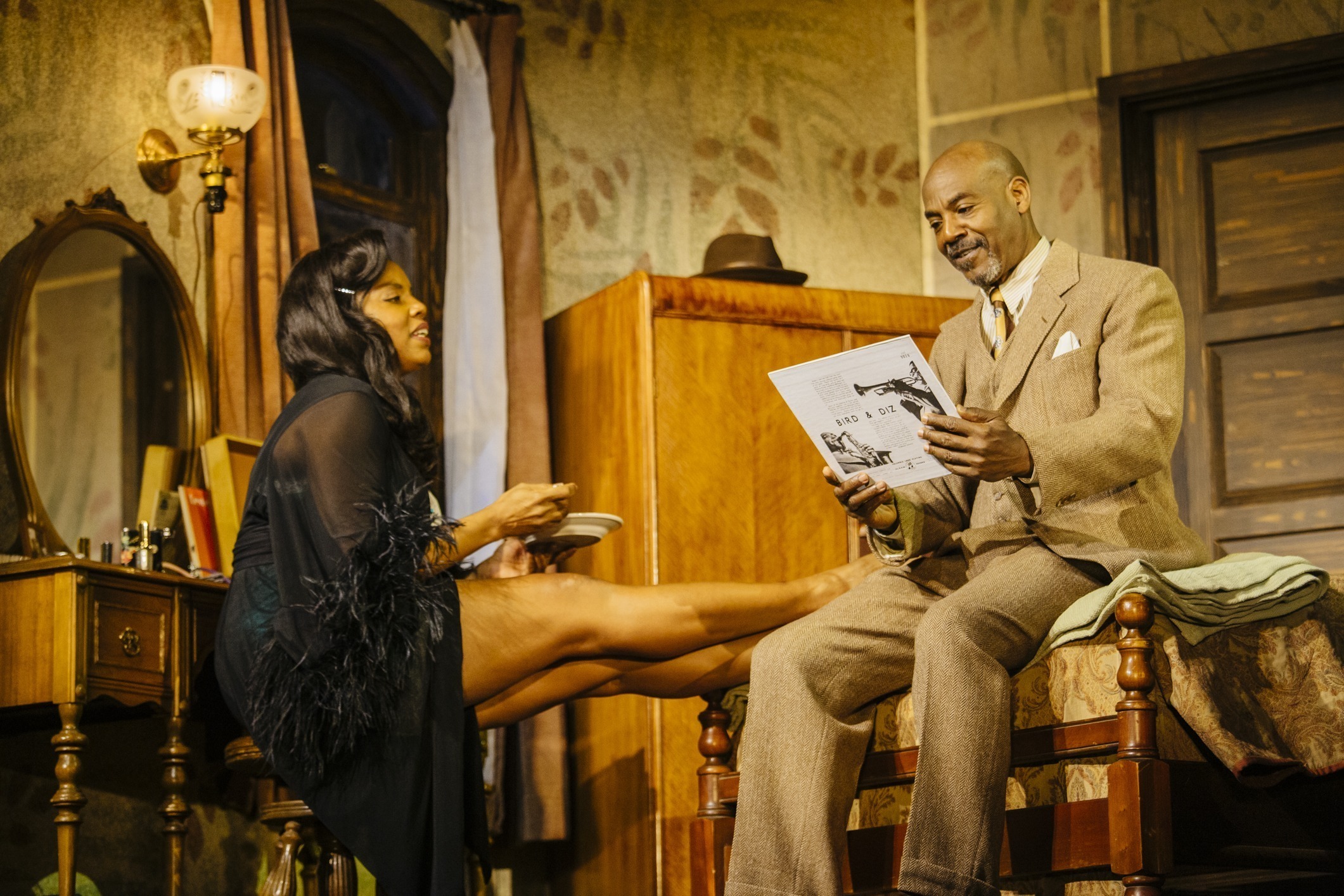
Written by Dominique Morisseau
Directed by Stori Ayers
Through December 12
Geffen Playhouse
10886 Le Conte Avenue, Westwood, Los Angeles
*Dominique Morisseau, November 24, 2021, statement:
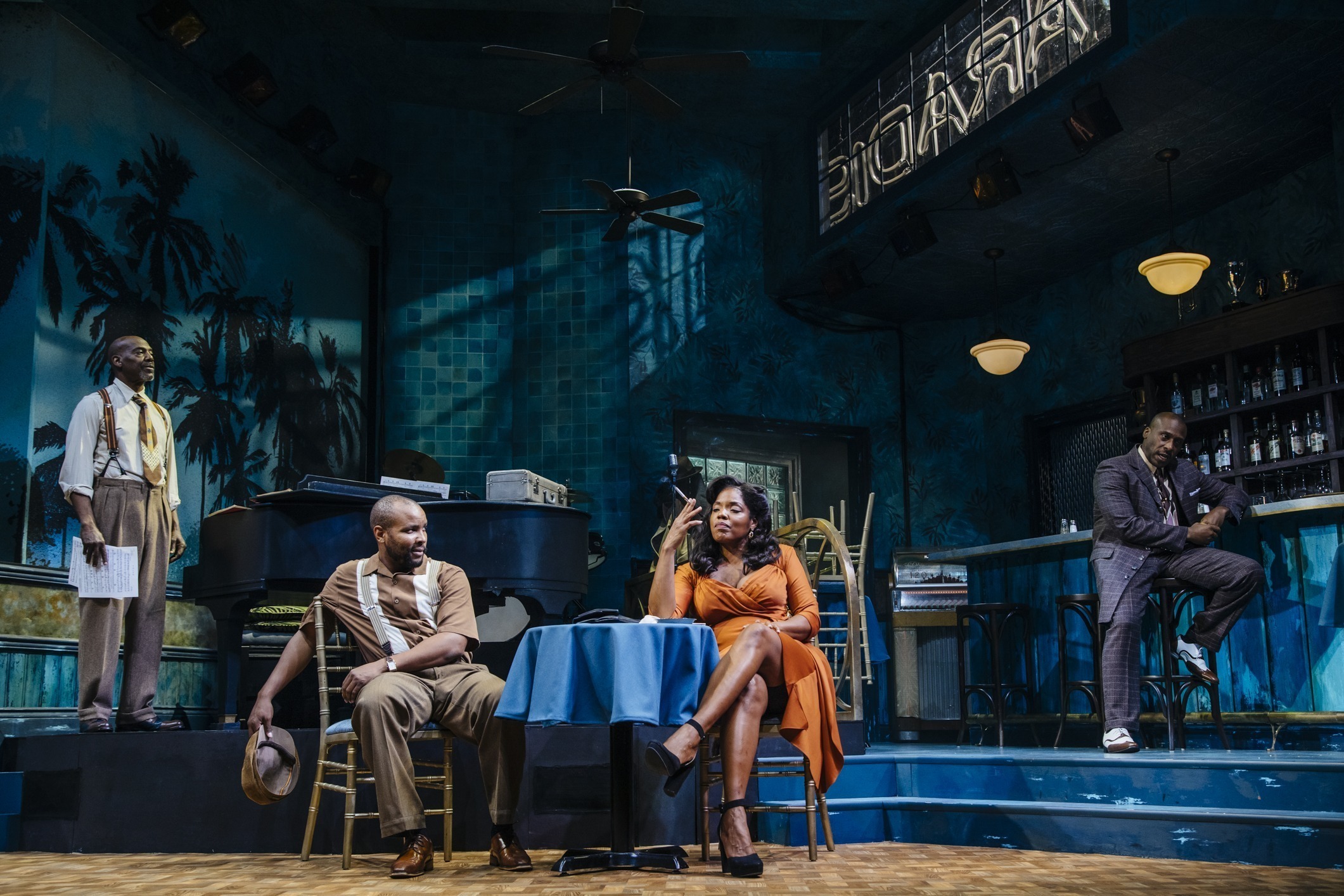
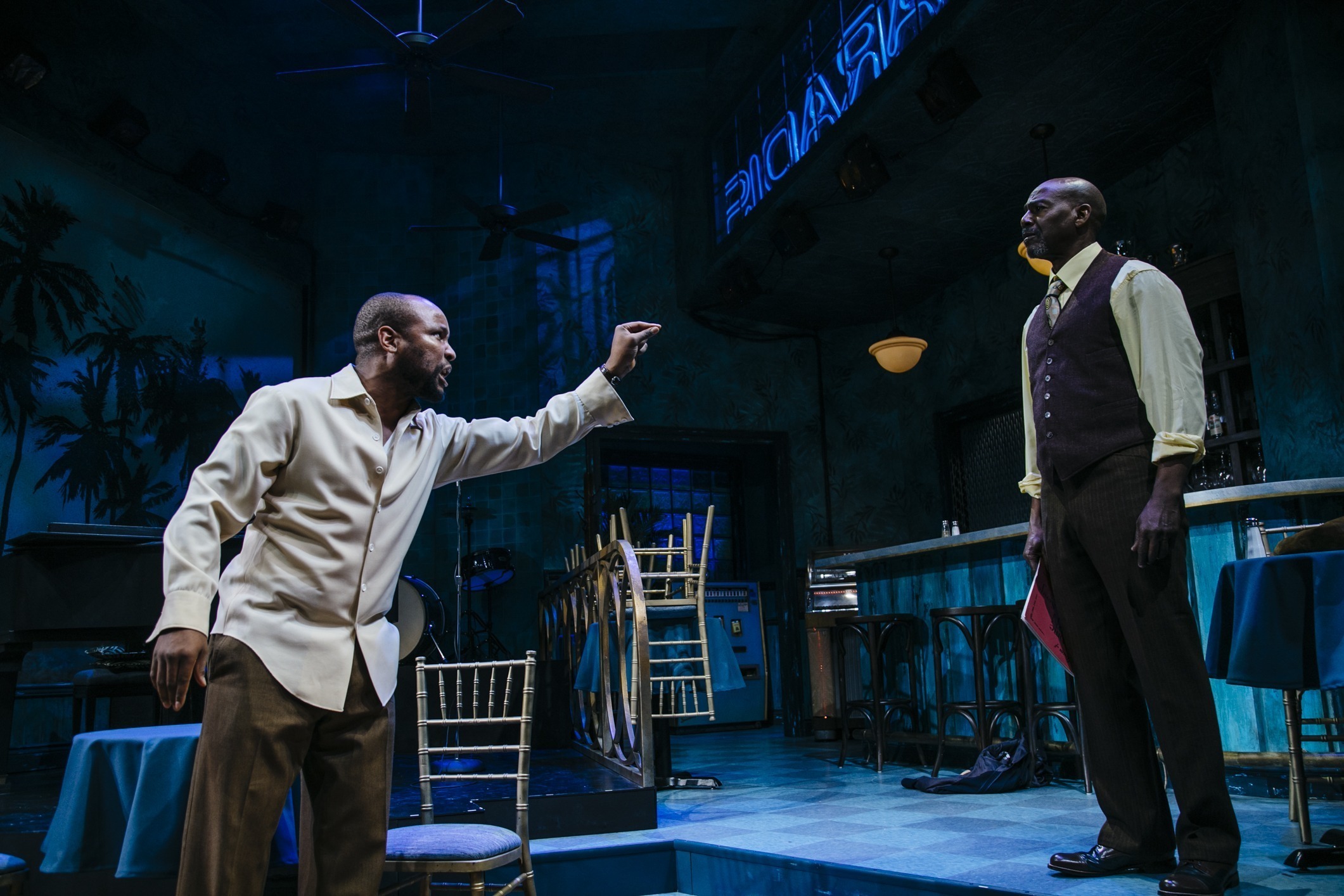
Dominique Morisseau, Paradise Blue, Geffen Playhouse, November 9, 2021–December 12, 2021, opening night November 18, 2021, directed by Stori Ayers, from top: Wendell B. Franklin; Franklin and Shayna Small; John Earl Jelks; Small and Tyla Abercrumbie; Alani iLongwe; Abercrumbie and Jelks; Jelks (left), iLongwe, Abercrumbie, and Franklin; iLongwe and Jelks; Abercrumbie and Franklin; Franklin. Photographs by Jeff Lorch, courtesy of Geffen Playhouse.

